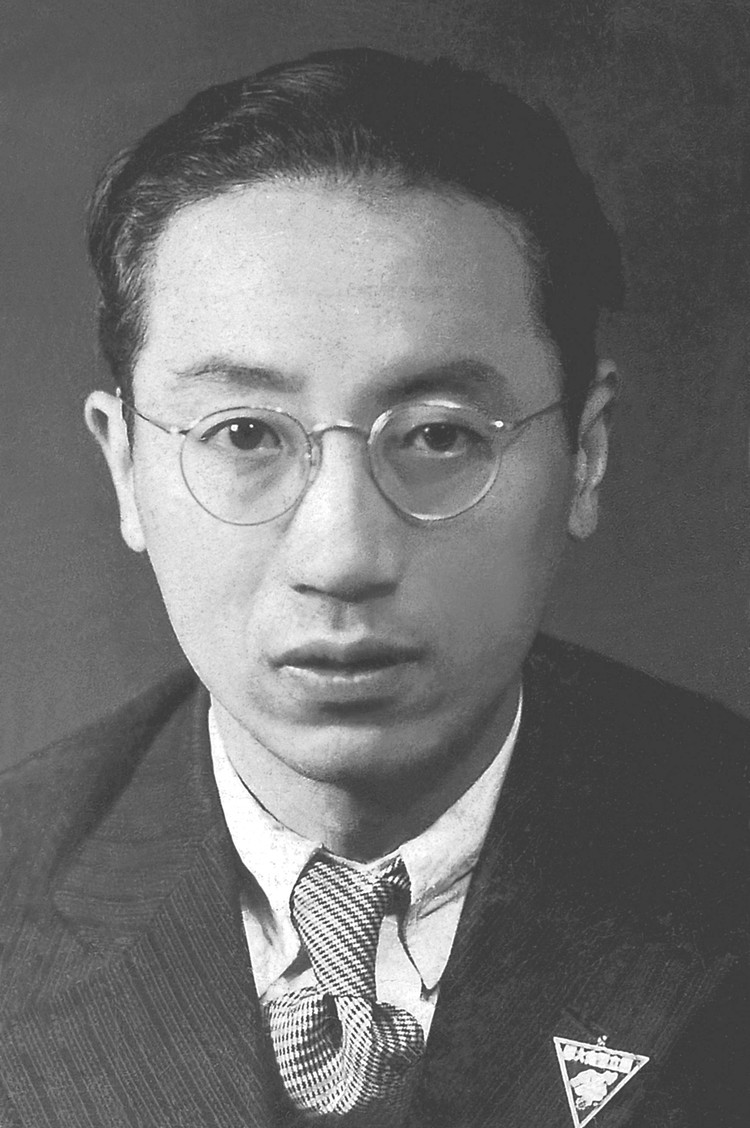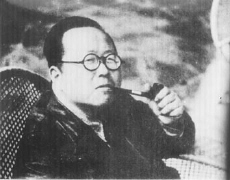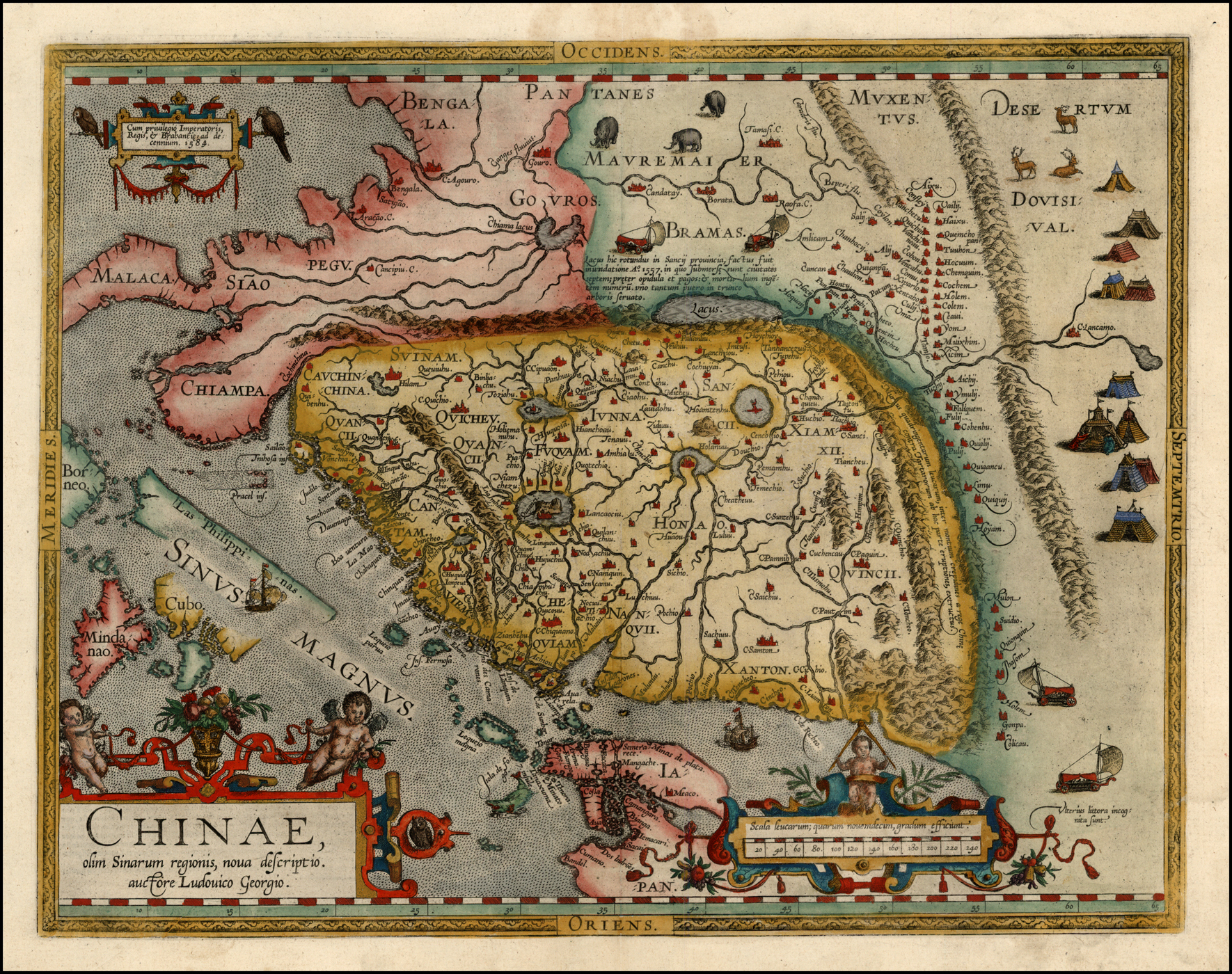|
Fei Xiaotong
Fei Xiaotong or Fei Hsiao-tung (November 2, 1910 – April 24, 2005) was a Chinese anthropologist and sociologist. He was a pioneering researcher and professor of sociology and anthropology; he was also noted for his studies in the study of China's ethnic groups as well as a social activist. Starting in the late 1930s, he and his colleagues established Chinese sociology and his works were instrumental in laying a foundation for the development of sociological and anthropological studies in China, as well as in introducing social and cultural phenomena of China to the international community. His last post before his death in 2005 was as Professor of Sociology at Peking University. Early years Fei Xiaotong was born in Wujiang (Jiangsu), Wujiang County of Jiangsu province in China on November 2, 1910. His world was one plagued with political corruption and abject poverty. He grew up in a gentry but yet not wealthy family. His father, Fei Pu'an () was educated in the Chinese cla ... [...More Info...] [...Related Items...] OR: [Wikipedia] [Google] [Baidu] |
Fei (surname)
Fei () is a traditional Chinese surname. It was 65th in the Hundred Family Surnames.K. S. Tom. 989(1989). Echoes from Old China: Life, Legends and Lore of the Middle Kingdom. University of Hawaii Press. . This surname has three main sources. Two of them are from the State of Lu during the Spring and Autumn period (722–481 BC), part of present-day Shandong province. A senior official of the state of Lu was granted a city named Fei, while the son of a certain duke was granted a county named Fei. Both of these place names were adopted by descendants as surnames. A third source of the name is Fei Zhong, a high minister of the Yin Dynasty (1401–1122 BC).http://www.ancestry.com/facts/Fei-civil-war.ashx Notable people * Fei Hsiao-Tung, professor of sociology and anthropology * Fei Junlong, commander of the second Chinese space flight * Fei Wuji, corrupt minister of the State of Chu during the Spring and Autumn period * Fei Xiang (transcription of the English name “Phili ... [...More Info...] [...Related Items...] OR: [Wikipedia] [Google] [Baidu] |
Sociology
Sociology is the scientific study of human society that focuses on society, human social behavior, patterns of Interpersonal ties, social relationships, social interaction, and aspects of culture associated with everyday life. The term sociology was coined in the late 18th century to describe the scientific study of society. Regarded as a part of both the social sciences and humanities, sociology uses various methods of Empirical research, empirical investigation and critical analysis to develop a body of knowledge about social order and social change. Sociological subject matter ranges from Microsociology, micro-level analyses of individual interaction and agency (sociology), agency to Macrosociology, macro-level analyses of social systems and social structure. Applied sociological research may be applied directly to social policy and welfare, whereas Theory, theoretical approaches may focus on the understanding of social processes and phenomenology (sociology), phenomenologic ... [...More Info...] [...Related Items...] OR: [Wikipedia] [Google] [Baidu] |
Pan Guangdan
Pan Guangdan (; 1898–1967) known in English as Quentin Pan, was a Chinese sociologist, eugenist, and writer. He was one of the most distinguished sociologists and eugenists of China. Educated at Tsinghua University on a Boxer Indemnity Scholarship, Dartmouth College and Columbia University, where he was trained by Charles B. Davenport, Pan was also a renowned expert on education. His wide research scope included eugenics, education policy, matrimony policy, familial problems, prostitute policy, and intellectual distributions. Pan's wide-ranging intellect led to his active participation in the Crescent Moon Society. Pan's most famous student was Fei Xiaotong, the "father of Chinese anthropology." Career Pan joined the China Democratic Groups League (later China Democratic League) in 1941, and was a standing committee member of the central committee of the League. During the Anti-Rightist Movement, he was determined to be a "rightist." Pan was persecuted in Cultural Revolut ... [...More Info...] [...Related Items...] OR: [Wikipedia] [Google] [Baidu] |
Tsinghua University
Tsinghua University (THU) is a public university in Haidian, Beijing, China. It is affiliated with and funded by the Ministry of Education of China. The university is part of Project 211, Project 985, and the Double First-Class Construction. It is also a member in the C9 League. Tsinghua University's campus is in northwest Beijing, on the site of the former imperial gardens of the Qing dynasty. The university has 21 schools and 59 departments, with faculties in science, engineering, humanities, law, medicine, history, philosophy, economics, management, education, and art. History Early 20th century (1911–1949) Tsinghua University was established in Beijing during a tumultuous period of national upheaval and conflicts with foreign powers which culminated in the Boxer Rebellion, an uprising against foreign influence in China. After the suppression of the revolt by a foreign alliance including the United States, the ruling Qing dynasty was required to pay inde ... [...More Info...] [...Related Items...] OR: [Wikipedia] [Google] [Baidu] |
Robert E
The name Robert is an ancient Germanic given name, from Proto-Germanic "fame" and "bright" (''Hrōþiberhtaz''). Compare Old Dutch ''Robrecht'' and Old High German ''Hrodebert'' (a compound of '' Hruod'' () "fame, glory, honour, praise, renown, godlike" and ''berht'' "bright, light, shining"). It is the second most frequently used given name of ancient Germanic origin.Reaney & Wilson, 1997. ''Dictionary of English Surnames''. Oxford University Press. It is also in use as a surname. Another commonly used form of the name is Rupert. After becoming widely used in Continental Europe, the name entered England in its Old French form ''Robert'', where an Old English cognate form (''Hrēodbēorht'', ''Hrodberht'', ''Hrēodbēorð'', ''Hrœdbœrð'', ''Hrœdberð'', ''Hrōðberχtŕ'') had existed before the Norman Conquest. The feminine version is Roberta. The Italian, Portuguese, and Spanish form is Roberto. Robert is also a common name in many Germanic languages, including En ... [...More Info...] [...Related Items...] OR: [Wikipedia] [Google] [Baidu] |
Beiping
"Beijing" is from pinyin ''Běijīng,'' which is romanized from , the Chinese name for this city. The pinyin system of transliteration was approved by the Chinese government in 1958, but little used until 1979. It was gradually adopted by various news organizations, governments, and international agencies over the next decade. Etymology The Chinese characters ("north") and ("capital") together mean the "Northern Capital". The name was first used during the reign of the Ming dynasty's Yongle Emperor, who made his northern fief a second capital, along with Nanjing (, the "Southern Capital"), in 1403 after successfully dethroning his nephew during the Jingnan Campaign. The name was restored in 1949 at the founding of the People's Republic of China. Peking Portugal was the first European country to contact China in modern times. In Portuguese, the city is called ''Pequim.'' This name appeared in the letters of Francis Xavier in 1552. It transferred to English as "Pekin" and t ... [...More Info...] [...Related Items...] OR: [Wikipedia] [Google] [Baidu] |
Yenching University
Yenching University () was a Private university, private research university in Beijing, China, from 1919 to 1952. The university was formed out of the merger of four Christian colleges between the years 1915 and 1920. The term "Yenching" comes from an alternative name for old Beijing, derived from its status as capital of Yan (state), the state of Yan, one of the seven Warring States that existed until the 3rd century BC. History Yenching University was formed through the merger of four Christian schools over the course of five years, from 1915 to 1920: * Hweiwen University (), also known as the Methodist Peking University, founded in 1890 by the Methodist Episcopal Church. This should not be confused with the Peking University, National Peking University founded eight years later in 1898. Huiwen's precursor (崇內懷理書院) was founded in 1870. Hiram Harrison Lowry was its principal. * North China Union College in Tongzhou District, Beijing, Tongzhou (). Its precursor (� ... [...More Info...] [...Related Items...] OR: [Wikipedia] [Google] [Baidu] |
Cy Young (animator)
Cyrus "Cy" Young (; March 7, 1897 – January 16, 1964) was a Chinese-American special effects animator, best known for his work for The Walt Disney Company. Young was brother of Chinese politician Yang Qianli (father of Hong Kong director Evan Yang), architect Yang Xiliu (S. J. Young), Entrepreneur Yang Xiren and Yang Renlan (mother of sociologist Fei Xiaotong). He had works in China called ''Pause'' and '' New Year''. Young's first work in United States was as lead animator on the 1931 short "Mendelssohn's Spring Song", a project completed while he was a student in New York City. Disney was so impressed with his work that he hired him to be head of the new special effects animation department and he partnered with animator Ugo D'Orsi. Frank Thomas and Ollie Johnston wrote in their book '' Disney Animation: The Illusion of Life''; "Through the entire thirties, the entire Effects Department consisted of only two men: Ugo D'Orsi, a straightforward, stubborn, and dedicated Itali ... [...More Info...] [...Related Items...] OR: [Wikipedia] [Google] [Baidu] |
Evan Yang
Evan Yang (November 26, 1920 – March 29, 1978) was a Chinese film director, screenwriter, actor and songwriter from Hong Kong. Early life On November 26, 1920, Yang was born in Wuhsien city, Jiangsu Province, China. Yang's father was Yang Qianli, a politician and university professor. His uncles and aunts include architect Yang Xiliu(S. J. Young), animator Cy Young, entrepreneur Yang Xiren and Yang Renlan (mother of sociologist Fei Xiaotong). In 1925, Yang moved to Wu County, Jiangsu, his ancestral home. In 1937, he moved to Shanghai with his family. In 1941, Yang graduated from St. John's University, Shanghai. Career Yang met Hu Shih in Shanghai in. Hu Shih said 'Yang Yanqi is just 13 years old and likes reading literatures, have a inherited genius and must be uncommon ones.' In 1936, Yang wrote his first script ''In The Era'' which was unaccepted. Yang started writing film script in Hong Kong from 1948 and started using the name "Evan Yang" from 1951. Yang was an edito ... [...More Info...] [...Related Items...] OR: [Wikipedia] [Google] [Baidu] |
Wujiang (Jiangsu)
Wujiang District (; Suzhounese: ''Wukaon Chiu''), formerly Wujiang City, is one of five urban districts in Suzhou, Jiangsu province. As the southernmost county-level division of Jiangsu, it borders Shanghai to the northeast and Zhejiang province to the south and southwest. The total area of Wujiang is 1176.68 square kilometers, with a population of 1.5 million. Wujiang is currently one of the most economically successful cities in China. Songling (), a town located at the centre of Wujiang, serves as the seat of the district government. Geography A portion of Lake Tai, numerous historical canals, and Historic Lili village are all located in Wujiang district. The government has announced that Wujiang will be designated as Taihu New City. Administration divisions In the present, Wujiang District has 1 subdistrict and 8 towns. Subdistrict * Binhu () Town * Lili () * Qidu () * Shengze () * Pingwang () * Songling () * Taoyuan () * Tongli () * Zhenze () Economy Wujiang ... [...More Info...] [...Related Items...] OR: [Wikipedia] [Google] [Baidu] |
Peking University
Peking University (PKU) is a Public university, public Types of universities and colleges in China#By designated academic emphasis, university in Haidian, Beijing, China. It is affiliated with and funded by the Ministry of Education of the People's Republic of China, Ministry of Education of China. The university is part of Project 211, Project 985, and the Double First-Class Construction. It is also a member in the C9 League. Established as the Imperial University of Peking in 1898 by a royal charter from the Guangxu Emperor, it is the second oldest university in China after Tianjin University (established in 1895). In May 1912, the government of the Republic of China ordered the Imperial University of Peking to be renamed Peking University. Then Peking University merged with Yenching University during the nationwide restructuring of universities and academic departments in 1952. In April 2000, the Beijing Medical University merged with the Peking University. Peking Universit ... [...More Info...] [...Related Items...] OR: [Wikipedia] [Google] [Baidu] |






